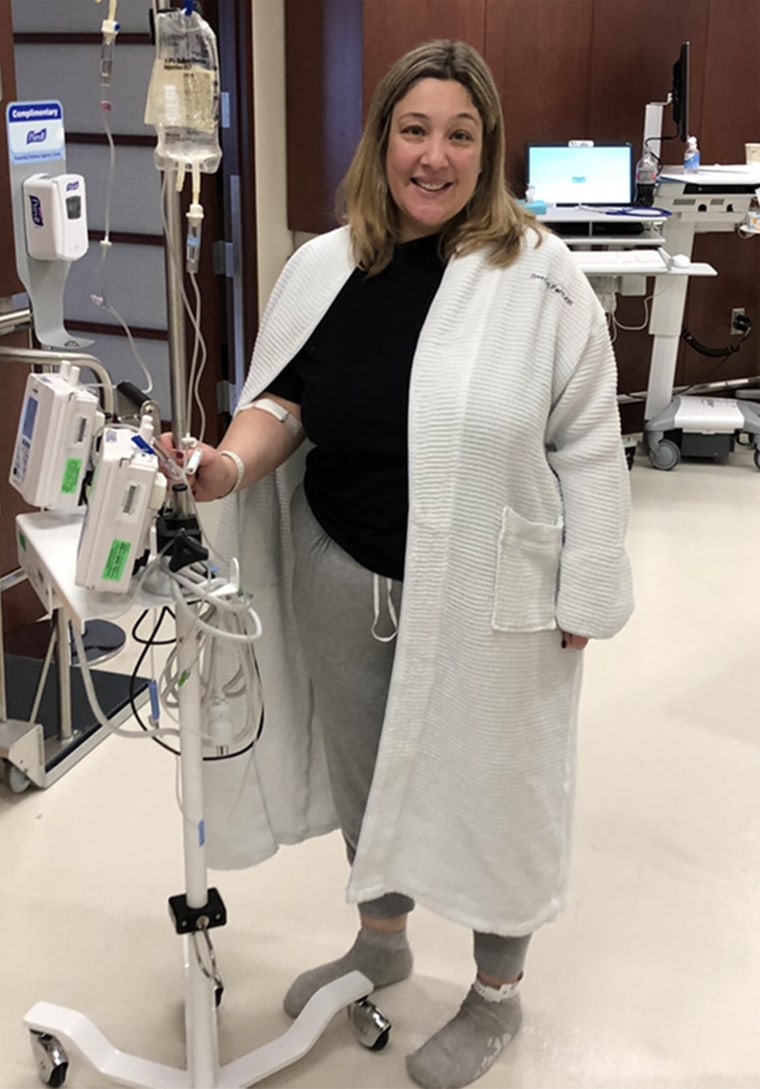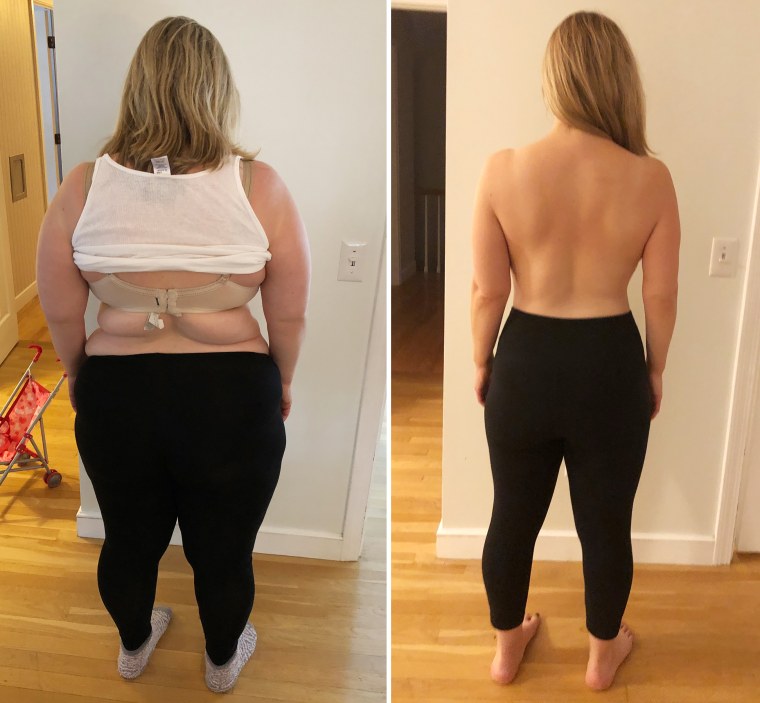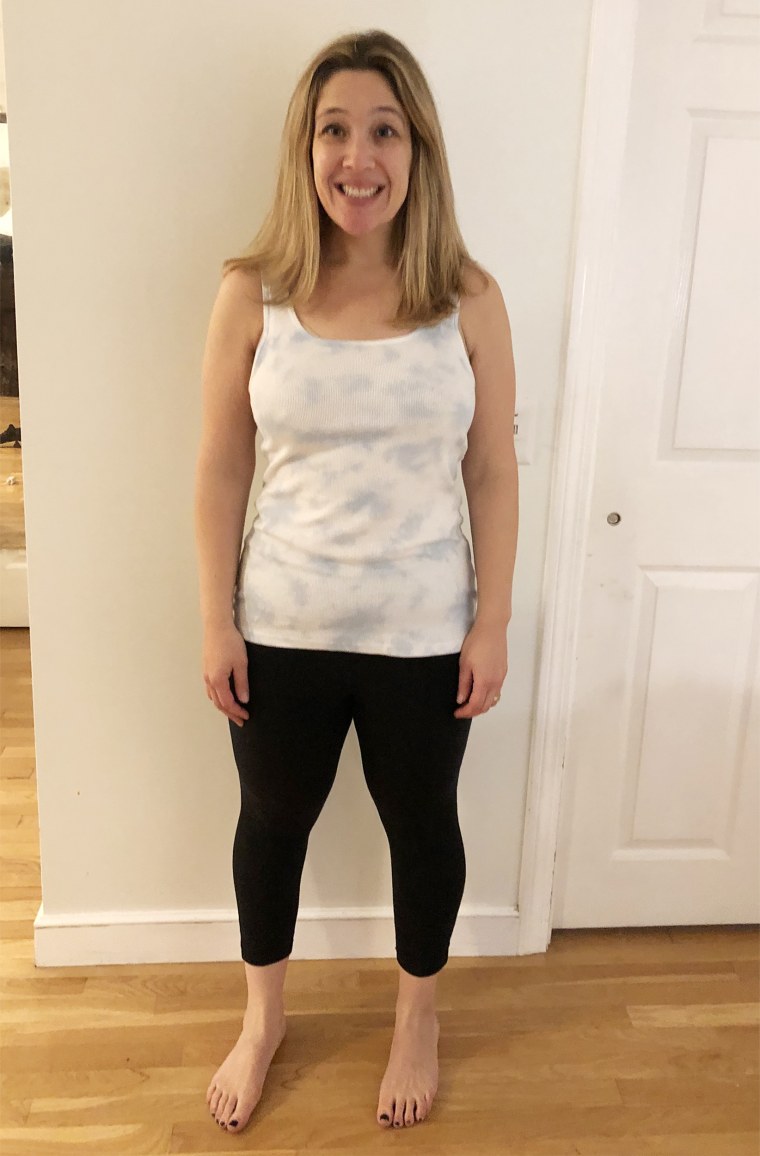A few years back, a fat friend debuted her new body on Instagram. Gone were the days of close-up, filtered face pictures. Suddenly, there she was posing in sleeveless jumpsuits and leather pencil skirts.
At the time, I weighed 220 pounds at 5 feet, 3 inches tall, so naturally, I reached out to learn her secrets.
“I just dialed back the carbs and started walking,” she replied.
As she got thinner and thinner, I got bigger and bigger. We were the same age. We were both moms. We’d both struggled with obesity since childhood. Why was I was failing when she was succeeding?

I now have an answer.
In 2019, shortly after I announced my decision to undergo a vertical sleeve gastrectomy or VSG, a surgery where a portion of the stomach is removed, the friend reached out.
She’d had VSG years earlier, but was too embarrassed to tell anyone. She didn’t want people to judge her or think she took the easy way out. I understand those feelings — the stigma surrounding weight-loss surgery is pervasive. Yet if I had known it worked for her, I might have considered it sooner.
“I wish you’d told me,” I said. “I feel like this surgery is going to save my life.”
Now, nearly a year later, I can tell you that it did.
When I was wheeled into the operating room at Brigham and Women’s Hospital in Boston in Dec. 2019, I was 40 years old and I weighed 240 pounds. Even though I was “healthy obese,” meaning I had normal blood pressure, blood sugar and cholesterol, I suffered from chronic pain in my legs and back.

Ten months later, I weigh 154 pounds and I'm still losing. The same person who used to get winded walking up one flight of stairs now spins six days a week. Not only that, but I actually crave exercise. I am 14 pounds away from my goal weight.
I feel like a new person.
“Bariatric surgery is the most impactful, least-utilized surgery on the planet,” Dr. Paul Davidson, a bariatric psychologist at Brigham and Women’s Hospital, who treated me, told TODAY.
According to the American Society for Metabolic and Bariatric Surgery (ASMBS) of the 24 million people who are eligible, only 1% elect to have weight-loss surgery.
Dr. Scott Shikora, director of the Center for Metabolic and Bariatric Surgery at Brigham and Women’s, chalks it up to the misconception that bariatric surgery is dangerous.
“Decades ago, the surgery was seen as high-risk. The mortality rate now is 1 out of every 2,000, about the same as gallbladder surgery,” Shikora told TODAY. “Bariatric surgery is like this great secret no one knows about.”

My new beginning
To prepare for my VSG, I followed a restrictive pre-operative diet for 14 days. The purpose of this low-calorie, low-carbohydrate meal plan is to reduce the size of your liver, making the surgery safer and easier. My head hurt, my body was confused and angry. But I didn't cheat.
For me, the hardest part was the recovery. It wasn't that I was in pain — but for three weeks, all I wanted to do was sleep. And I was also hungry. After surgery you begin a restrictive diet for 40 days, which allows your stomach to heal. Of course, that's all just a distant memory now. Today, I eat whatever I want, but I measure my food, stick to small portions and eat lean proteins. I also practice chewing a bite 30 times before swallowing.
When I post before-and-after photos on social media, I always use the #VSG hashtag. I don’t want someone to compare their weight-loss progress to mine and feel bad. My stomach can only hold 4 ounces of food at at time. The surgery also reduces hunger by eliminating the portion of the stomach that produces ghrelin, the hormone that stimulates appetite.
But I also use the hashtag because like Kelly Osbourne, who dropped 85 pounds after undergoing gastric sleeve surgery, I’m a proud member of the weight-loss surgery community.
Obesity is a genetic, chronic disease just like diabetes and so it makes sense to treat it with medical intervention. You should never feel ashamed for taking control of your health.
“There is nothing else in all of medicine that can positively impact so many different health conditions with one operation,” Shikora explained. “Sleep apnea, Type 2 diabetes, high blood pressure, heart disease — those disorders can all be reduced or reversed with bariatric surgery.”
The benefits are endless. Shikora noted that weight-loss surgery can cut your overall risk of developing types of hormone-related cancers. Recent studies have found that weight-loss surgery greatly reduces the risk of early death for obese patients.

When a person has a body mass index (BMI) greater than 35, their chances of reaching a normal weight for a lasting period of time is less than 1%, according to the ASMBS. At the time of my surgery, I had a BMI of more than 42.
Though it's too early to say if I will be a long-term success story, the odds are in my favor.
According to the ASMBS, approximately 90% of patients after bariatric surgery lose 50% of excess weight and keep it off long-term.
Weight-loss surgery works for people like me who have struggled their entire lives. If you're like me, but are nervous to consider surgery, talk to a doctor and ask lots of questions.
Here’s what else I know: At 41 years old, I am the healthiest I’ve ever been. Yesterday I crushed a 6-mile run with hills! When I walk into a room I take a seat in the front instead of hiding in the back. My daughters have a mom who jumps into the pool with them. I've lost 85 pounds, but the confidence I’ve gained is immeasurable.
